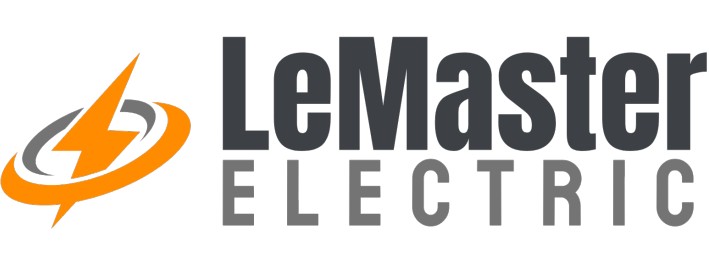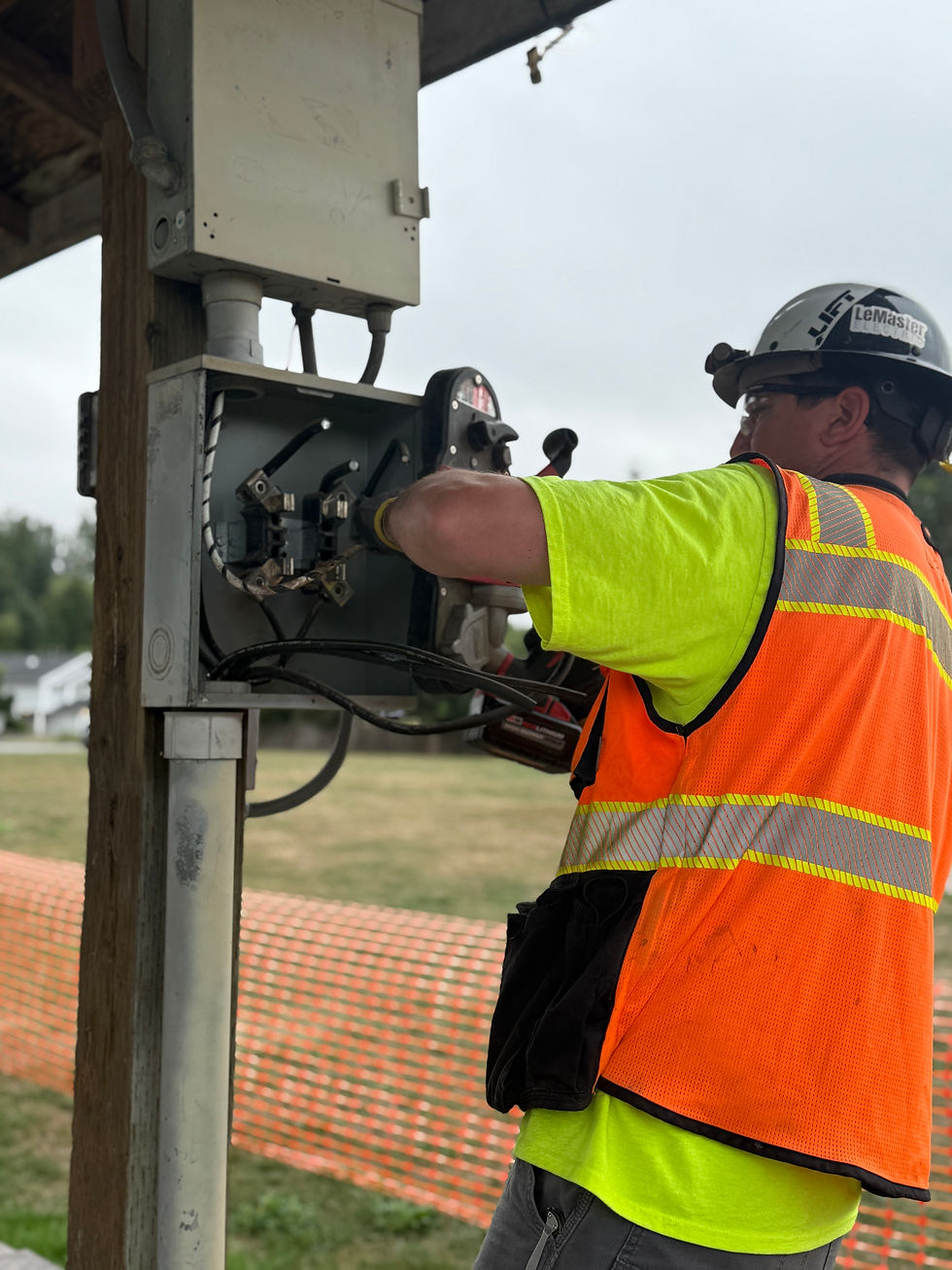Safety
Safety Policy Spotlight: “Test Before You Touch” in Commercial Electrical Work

Introduction
Electrical work is dangerous if it’s not handled with the right training and safeguards. One of the most important safety rules in the trade is simple: “Test Before You Touch.”
This means never assuming a wire or circuit is safe just because someone thinks it’s turned off. Instead, electricians must always test equipment with a proper meter before working on it.
At LeMaster Electric, we treat this as more than a habit — it’s a non-negotiable safety policy that protects workers, clients, and property.
What “Test Before You Touch” Really Means
Assumption is dangerous. Just because a breaker looks off doesn’t mean power isn’t coming from another source.
Verification is required. Before touching, electricians use a voltage tester or meter to confirm the circuit is truly de-energized.
Consistency saves lives. It doesn’t matter if the project is a quick tenant improvement or a large industrial upgrade — the process is always the same.
Why This Rule Exists
Real-Life Scenario #1: Multiple Trades in the Same Building
On a commercial office project, the electrician turns off a breaker to work on lighting. An HVAC crew, not realizing, flips it back on so their equipment can run. If the electrician touches the wire without testing it first, they could get a severe shock.
Real-Life Scenario #2: Multiple Power Sources
In a data center, circuits may be fed by both utility power and backup generators. Even if one source is off, the other may still be live. Without testing, an electrician could unknowingly work on an energized system.
Real-Life Scenario #3: Mislabeling or Outdated Panels
In older commercial buildings, labels on breakers often don’t match the circuits they control. A breaker marked “Storage Room” might actually feed the office next door. Only testing proves the truth.
How This Impacts Commercial Projects
Safer Worksites: Contractors reduce the risk of injuries, shutdowns, or liability.
Fewer Delays: Accidents halt projects. Safety-first practices keep schedules on track.
Lower Costs: Injuries and failed inspections are expensive. Proactive safety saves money long-term.
Trust with Owners: Property managers and GCs know the project is being done the right way, not just the fast way.
How Contractors and Property Managers Can Support This Policy
Allow Time for Safety: Build testing time into project schedules.
Support Clear Access: Keep panels and disconnects accessible so electricians can test properly.
Encourage Compliance: Work with contractors who enforce written safety policies, not just verbal reminders.
Why Work with LeMaster Electric?
At LeMaster Electric, we make safety and compliance part of our culture:
Every electrician is trained to “test before they touch” — no exceptions.
We use properly rated meters and follow a step-by-step process for verification.
Our policies align with both OSHA requirements and Washington L&I standards.
We treat safety as part of quality — because a safe job is a successful job.
Conclusion
“Test Before You Touch” may sound simple, but it’s one of the most important policies in commercial electrical work. It prevents accidents, builds trust with clients, and keeps projects running smoothly.
By choosing LeMaster Electric, you’re partnering with a contractor that doesn’t just meet code — we go further, embedding safety and compliance into every decision we make. That means safer workers, safer buildings, and better outcomes for every project.
Recent posts
Aging Electrical Infrastructure: Risks Emerging in Mid-Life Commercial Buildings
Many commercial buildings constructed between the 1980s and early 2000s are now entering a mid-life phase for their electrical infrastructure. While these systems may still be operational, the conditions under which they were designed often no longer reflect current usage.
Emerging Challenges in Temporary Power Safety on Construction Sites
Temporary power systems on construction sites are carrying more responsibility than ever before. What was once limited to basic lighting and hand tools now routinely supports heaters, lifts, temporary HVAC, testing equipment, and high-demand specialty trades.

%20(1).webp)


